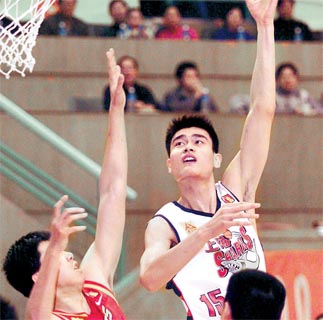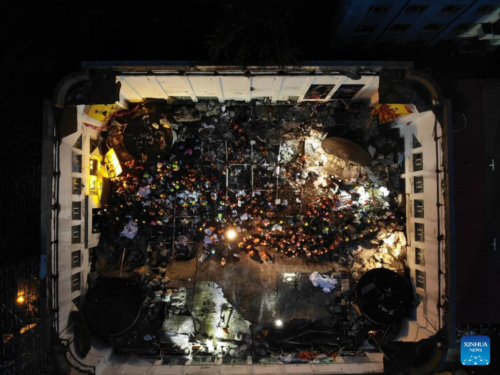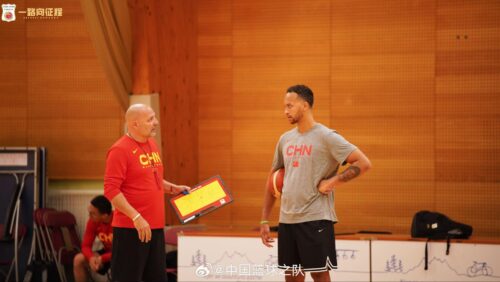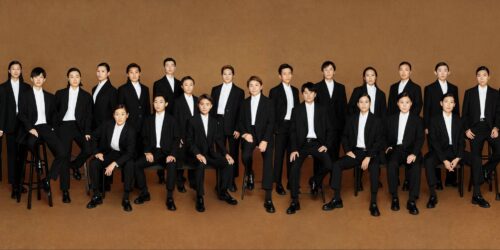Kobe, Yao Ming in Shenzhen for FIBA World Cup draw, and Chinese soccer loses to Thailand (again)
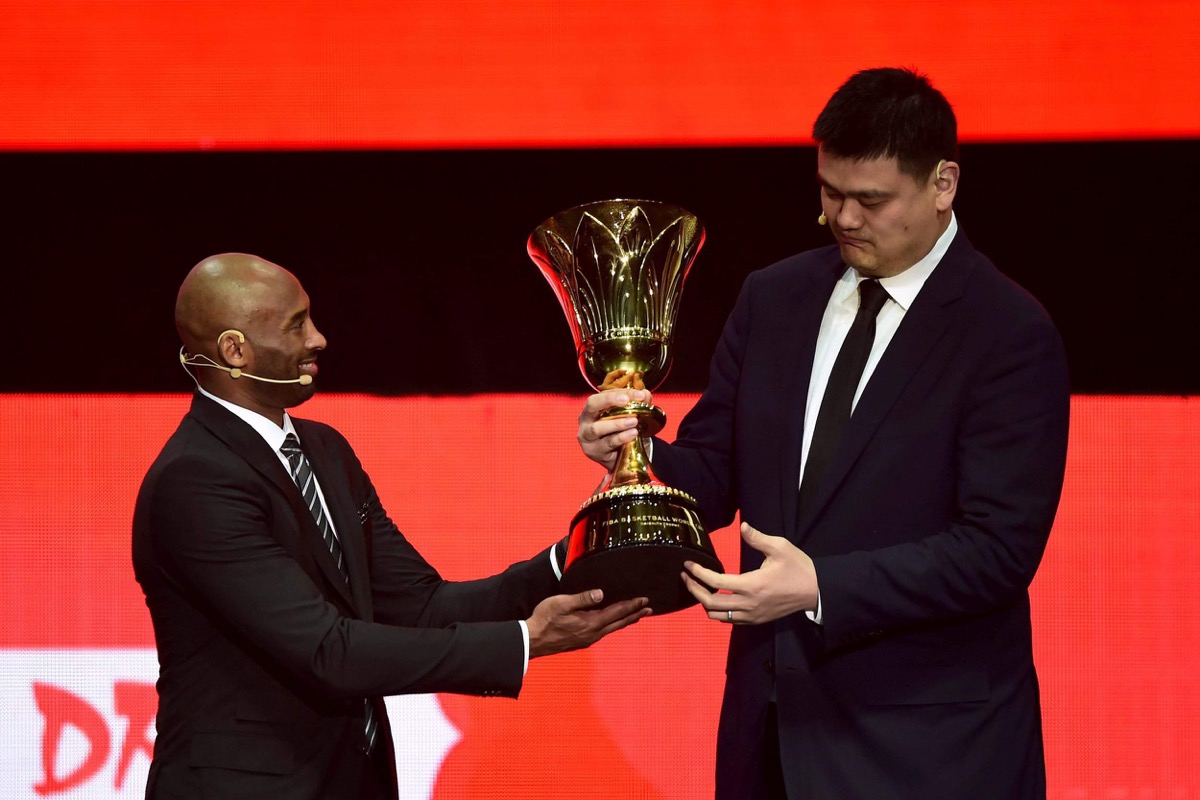
The China Sports Column is a The China Project weekly feature in which China Sports Insider Mark Dreyer looks at the week that was in the China sports world.
Yao Ming 姚明, Kobe Bryant, and other luminaries from the basketball world gathered in Shenzhen last weekend alongside 8,000 fans of the sport as the draw for this summer’s FIBA Basketball World Cup took place.
As sporting World Cups go, there’s at least one other that gets a little more attention — and which China has long been trying to attract to its shores — but by the time August rolls around, expect basketball fever to be everywhere in China.
The World Expo, for example, never used to be a huge deal in international circles, but Shanghai 2010 took it to a whole different level, and you can expect the same when the basketball world descends on China this summer.
As hosts, China was seeded so as to avoid all the top teams, such as the U.S., Spain, and France. But ranked 30th in the world, China is not a team that many others will fear.
Venezuela (20), Poland (25), and Cote d’Ivoire (64) are the other teams in China’s group, and it’s about as easy a line-up as the hosts could have hoped for.

Cote d’Ivoire enters the tournament after a huge win in its final qualifier allowed it to sneak in by a thread. They have nothing to lose, but are the lowest-ranked team in the tournament.
Poland is entering the World Cup for the first time in 52 years, and while Venezuela won its first FIBA Americas Championship title in 2015, only a handful of Venezuelans have ever played in the NBA — and none of the current roster do so.
Should China manage to finish in the top two in Group A, it will progress to the second round — another group stage — where things will get substantially tougher, with Russia and Argentina likely opponents.
Under Yao Ming, China has split its squad into two parallel teams — an experimental luxury afforded since World Cup qualification was already assured as hosts. It might be an unusual strategy, but with more than 40 players registered in recent international competition, one advantage is that China will be pretty hard for the other teams to scout.
And if China can ride the wave of home support, it is sure to avoid Team USA until the latter stages, by which point even a crushing defeat would still be considered a success.
The top-seeded Americans play Turkey (17), Czech Republic (24), and Japan (48) in its opening group and enter the tournament as hot favorites, even though it’s only won five editions of the 17 previous tournaments.
That said, after wins in Turkey in 2010 and Spain in 2014, USA will be keen to for a third consecutive title as it looks to improve its FIBA record to something approaching its stellar Olympic record.
Other stars in Shenzhen included singer-songwriter Jason Derulo, who performed at the draw ceremony, and two-time NBA All-Star Stephon Marbury — though he’s perhaps best known in these parts for his three CBA rings with the Beijing Ducks.
I’ll be sitting down with Marbury this Sunday as part of the Bookworm Literary Festival at the Bookworm in Sanlitun, Beijing, for a one-on-one chat about the World Cup, March Madness, his thoughts on Chinese basketball, his new Globe Ball and more.
Tickets have almost all been snapped up, but you can try your luck for the last remaining ones here.
In other basketball news, there was a great story recently about Liu Zhe, a 28-year-old Kobe fan from Harbin, who bought one of Bryant’s high school jerseys online for about $2,000, but returned it to the former NBA star this month after realizing it had in fact been stolen from Lower Merion High School in Pennsylvania.
Liu had previously met Kobe, but the two were reunited after the star wanted to thank his biggest fan for his good deed.
Meanwhile, the NBA is looking to hire its first head of government and public affairs in China, a newly created position that will oversee “shaping the public narrative” of the NBA in China. Reporting directly to NBA China CEO Derek Chang, the job calls for 15 years of experience, fluency in Mandarin and English, and “deep knowledge of legislative and regulatory processes in Mainland China.”
If that’s you, send your CV to Singapore-based recruitment firm Henry Hale Maguire.
Fabio Cannavaro made his debut in the Chinese National Team but it looks worrying for his future: China was defeated by Thailand 1:0 and had not been Yan Junling's handful of magnificent saves, it would have been an humiliated loss. Chanathip Songkrasin is the man of the match. pic.twitter.com/d4SfpyFv5s
— Titan Sports (@titan_plus) March 21, 2019
Another week, another soul-crushingly bad result for Chinese football, this time at the hands of Thailand in the opening fixture of the four-team China Cup tournament.
Originally intended as an international competition that could grow into something respectable — while allowing China to boost its FIFA rankings against hand-picked opposition — the three-year experiment has fallen far short of expectations.
Thailand has become something of an unlikely nemesis for China, after a 5-1 defeat in Hefei in 2013 prompted riots on the streets and led to the prompt sacking of overpaid Spanish coach Jose Antonio Camacho.
It says a lot, though, when a 1-0 home defeat to Thailand can be viewed as an improvement: this time last year, China was smashed 6-0 by Wales.
China’s only “win” in the tournament’s three-year history was a 4-3 penalty shootout against Croatia in the third-place playoff match in 2017.
China faces Uzbekistan on Monday in this year’s third-place playoff, and is not expected to win.
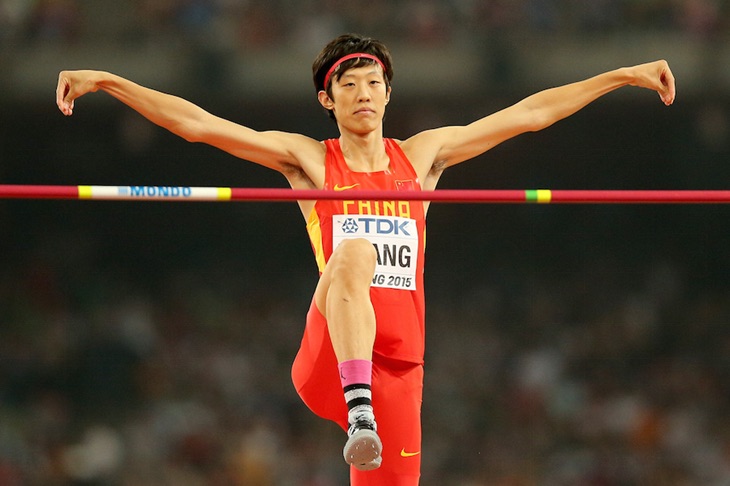
Finally this week comes news of a ban for high jumper Zhang Guowei 张国伟, who has been suspended from all competitions with immediate effect for an unspecified length of time by the Chinese Athletics Association (CAA).
His “crime”?
Attending two commercial events earlier this year without getting permission from the national team.
It truly beggars belief, except it shouldn’t because we’ve seen this movie before.
China wants to become a global force in the sporting world, but still won’t allow its athletes to abide by global norms. Conflict usually arises over money — whether prize money or commercial sponsorships — much of which is controlled by the national team. The Soviet-style mentality still looms large in the state’s sporting infrastructure.
Li Na 李娜 faced a significant amount of resistance from some (though not all) quarters when she first broke free from the state system and was allowed to choose her own coaches, set her own schedule, and, crucially, keep most of her own prize money. That turned out pretty well for the two-time Grand Slam winner.
Swimmer Sun Yang 孙杨 has a history of making bad decisions — including this drug case, which may yet end his career — but he’s also been badly mishandled by overzealous officials keen to control his lucrative commercial opportunities.
Meanwhile, Zhang is a rare breed among Chinese athletes in that he has an outgoing, exuberant personality with which fans can connect.
And he’s talented, too. He’s struggled to rediscover his form from 2015 when he won a silver medal at the World Championships, but at 27 he still has some prime years ahead.
In other countries, athletes faced with this kind of ludicrous punishment would simply defect to somewhere else more welcoming. Unfortunately for Zhang, that option isn’t on the table.
The China Sports Column runs every Friday on The China Project. Follow Mark Dreyer @DreyerChina.

